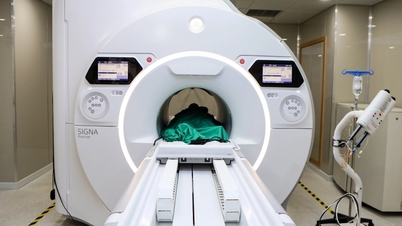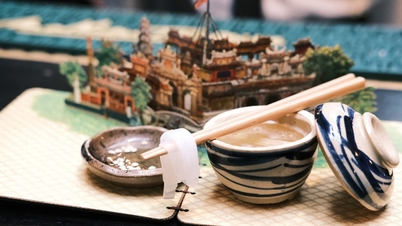1. Eat slowly and chew thoroughly to improve your bowel movements.
- 1. Eat slowly and chew thoroughly to improve your bowel movements.
- 2. Eat until you feel about 80% full
- 3. Sunbathe for 10 minutes in the morning
- 4. Walk 10 minutes after meals
- 5. Add fermented foods 3 times a week
- 6. Eat one fruit and three vegetables every day
- 7. Maintain a 12-hour eating schedule
- 8. Sleep before 11 pm
- 9. Read 5 to 10 pages of a book every day
- 10. Do things that make you happy every day
According to Dr. Pal, a gastroenterologist in India, the digestive process begins in the mouth, so to protect intestinal health, you should start with something simple: chewing each bite 20 to 30 times. Chewing slowly helps mix food with saliva and reduce the load on the stomach.
This slow chewing helps kick-start digestion, reduces bloating, aids weight control and increases nutrient absorption.
Additionally, studies have shown that eating slowly and chewing 25-40 times per bite helps the body feel full faster, reduces overeating and snacking, and allows the body to better absorb nutrients from food.
2. Eat until you feel about 80% full
Eating until you are 80% full is a mindful eating habit that helps reduce inflammation and prevent feeling heavy and sluggish after meals. It also helps prevent weight loss after meals and can reduce reflux or discomfort. To do this, individuals should eat smaller portions on smaller plates.

Eating slowly and chewing thoroughly helps reduce the load on the stomach and aids in nutrient absorption.
3. Sunbathe for 10 minutes in the morning
Exposure to 10 minutes of morning sunlight helps regulate the body's circadian rhythm, improve mood and support vitamin D levels. Furthermore, morning sunlight can promote better sleep and maintain a healthier gut.
4. Walk 10 minutes after meals
A short 10-minute walk after each meal indoors, down the hallway, or around the block at a moderate pace can be effective in aiding digestion, controlling blood sugar, and preventing post-meal drowsiness.
What's more, walking after a meal not only burns calories, but also supports overall health in surprising ways. Studies show that taking a short 10-minute walk after eating can aid digestion by helping food move smoothly through the stomach and intestines.
Walking after meals also helps regulate blood sugar levels, especially for people with diabetes, reducing the risk of heart disease by improving blood pressure and cholesterol levels. Furthermore, walking after meals aids in weight control and maintains stable energy levels throughout the day.
5. Add fermented foods 3 times a week
Fermented foods like curd, dosa batter, kimchi or kefir should be added to the diet at least thrice a week to nourish the gut with beneficial bacteria.
6. Eat one fruit and three vegetables every day
Follow a simple rule: Eat one seasonal fruit and three vegetables at meals in a combination of colors - green, orange, red or purple. Plant fiber feeds the beneficial bacteria in your gut and keeps your digestive system running smoothly.
7. Maintain a 12-hour eating schedule
Choose any 12-hour window that fits your personal routine and schedule, such as 8 a.m. to 8 p.m. Maintaining this eating window allows your gut time to recover, detoxify naturally, and also limits late-night snacking, which can disrupt sleep and digestion.
8. Sleep before 11 pm
Sleep plays an important role in gut health. Going to bed before 11pm helps your gut microbiome regenerate properly and helps stabilize your appetite hormones. Staying up late can lead to poor digestion and cravings the next day.

Sleeping before 11pm helps the intestines 'heal themselves'.
9. Read 5 to 10 pages of a book every day
In addition to culinary habits, Dr. Pal also emphasizes the power of mental habits such as reading 5 to 10 pages of a book every day to help relax the mind and reduce stress, thereby directly benefiting digestion.
To do this, keep a book next to your bed — even just a few pages will help keep you away from your phone screen before bed.
10. Do things that make you happy every day
Listening to music, soaking up the sun, praying, or calling a friend are all fun activities that can help reduce stress and soothe gut symptoms that can flare up when you feel stressed. So, make a fun activity a daily habit to support a healthier gut over time.
Source: https://suckhoedoisong.vn/10-thoi-quen-giup-duong-ruot-tu-chua-lanh-ma-khong-can-che-do-an-kieng-nghiem-ngat-169251110115010834.htm



![[Photo] Special class in Tra Linh](https://vphoto.vietnam.vn/thumb/1200x675/vietnam/resource/IMAGE/2025/11/14/1763078485441_ndo_br_lop-hoc-7-jpg.webp)


![[Photo] Unique art of painting Tuong masks](https://vphoto.vietnam.vn/thumb/1200x675/vietnam/resource/IMAGE/2025/11/14/1763094089301_ndo_br_1-jpg.webp)

![[Photo] Deep sea sand deposits, ancient wooden ship An Bang faces the risk of being buried again](https://vphoto.vietnam.vn/thumb/1200x675/vietnam/resource/IMAGE/2025/11/13/1763033175715_ndo_br_thuyen-1-jpg.webp)






























































































![Dong Nai OCOP transition: [Article 3] Linking tourism with OCOP product consumption](https://vphoto.vietnam.vn/thumb/402x226/vietnam/resource/IMAGE/2025/11/10/1762739199309_1324-2740-7_n-162543_981.jpeg)






Comment (0)